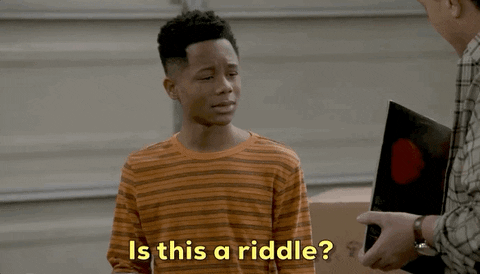Are riddles easier when you read them?
Plus, why bullying may be an even bigger problem than we think.
“It takes quite a bit of time and work to figure out what you really want to do.” – Psychologist Ken Sheldon
BRAIN WAVES
Listen up! “How many animals of each kind did Moses take on the Ark?” Your answer might vary, depending on whether you’re reading or listening to the question. At least that’s the finding from a new study, which proposes that listening speaks to our intuition while reading promotes analytic thought. In a series of experiments, researchers found that people used more logical reasoning when riddles, trivia questions, and puzzles were written rather than spoken. Take the Moses question, for instance – better known as the Moses illusion. The correct answer is that in biblical literature, it’s Noah who built the ark, not Moses. It’s a trick question, and when you hear it asked, it’s easier to respond intuitively: two. “In contrast, when such questions are read, people would be more likely to detect the semantic anomalies,” the researchers write. In other words, there may be differences in how we process information, depending on whether we’re reading or listening to that information.
We know bullying can have a severe and negative effect on mental health. But a recent study on teen deaths by suicide suggested that the consequences of bullying might be even more significant. Researchers analyzed data from the National Vital Statistics System from 1990-2019 and found that deaths by suicide among teenagers were highest during months of the school year and lowest between June and August. What’s more, it found a dramatic change in 2020. “Teen suicides plummeted in March 2020, when the COVID-19 pandemic began in the U.S.” And the rates remained low until that fall when many students returned to the classroom. “While we cannot rule out other mechanisms, such as changes in parental support, our results suggest that changes in exposure to bullying…may be a key factor,” the researchers write. They suggest that anti-bullying laws could be an impactful solution. If you or someone you know are in crisis, additional resources and support can be found here. The National Institute of Mental Health also provides warning signs, which can be found here.
Thank you, thank you. Many of us struggle with self-control. And we assume willpower is the key to achieving our goals. But there’s a simple and often overlooked mental habit that can improve our health and well-being. Listen to learn more.
ON THE HIDDEN BRAIN PODCAST
Jan 3: Psychologist Ken Sheldon has found that in our pursuit of happiness,
we often select the wrong goals. That is, we point ourselves in directions that don't ultimately lead to lasting contentment. This week, we explore the science of knowing what to want: How to set your sights on targets that will actually make you feel good if you achieve them.
ON THE MY UNSUNG HERO PODCAST
Dec 20: After Vanessa had a life-threatening allergic reaction in a foreign country, her young tour guide stepped in to help.
Don’t forget to send us the story of your unsung hero! Record a voice memo on your phone and email it to myunsunghero@hiddenbrain.org.
MIND GAMES
What is 3/7 chicken, 2/3 cat, and 2/4 goat?
LAST WEEK’S PUZZLE
One family wants to get through a tunnel. Dad can make it in one minute, mom in two minutes, son in four and daughter in five minutes. No more than two people can go through the tunnel at one time, moving at the speed of the slower one. How can they all make it to the other side if they have a torch that lasts only 12 minutes and they are afraid of the dark?
The answer: First mom and dad – 2 minutes. Dad comes back – 3 minutes, both children go to mom – 8 minutes. Mom comes to dad – 10 minutes and they both get to their children – 12 minutes. [source]
FROM THE TWITTERATI…
A MOMENT OF JOY
When a bus stranded outside of this family’s home during a blizzard in Buffalo, they turned it into a celebration.
Read the full story.
Have an idea for Hidden Brain? A story you want to share with us? Send an email to ideas@hiddenbrain.org. And if you’d like to support our work, you can do so here. Listen to us on Spotify, Apple, Amazon Music or your favorite podcast platform.




